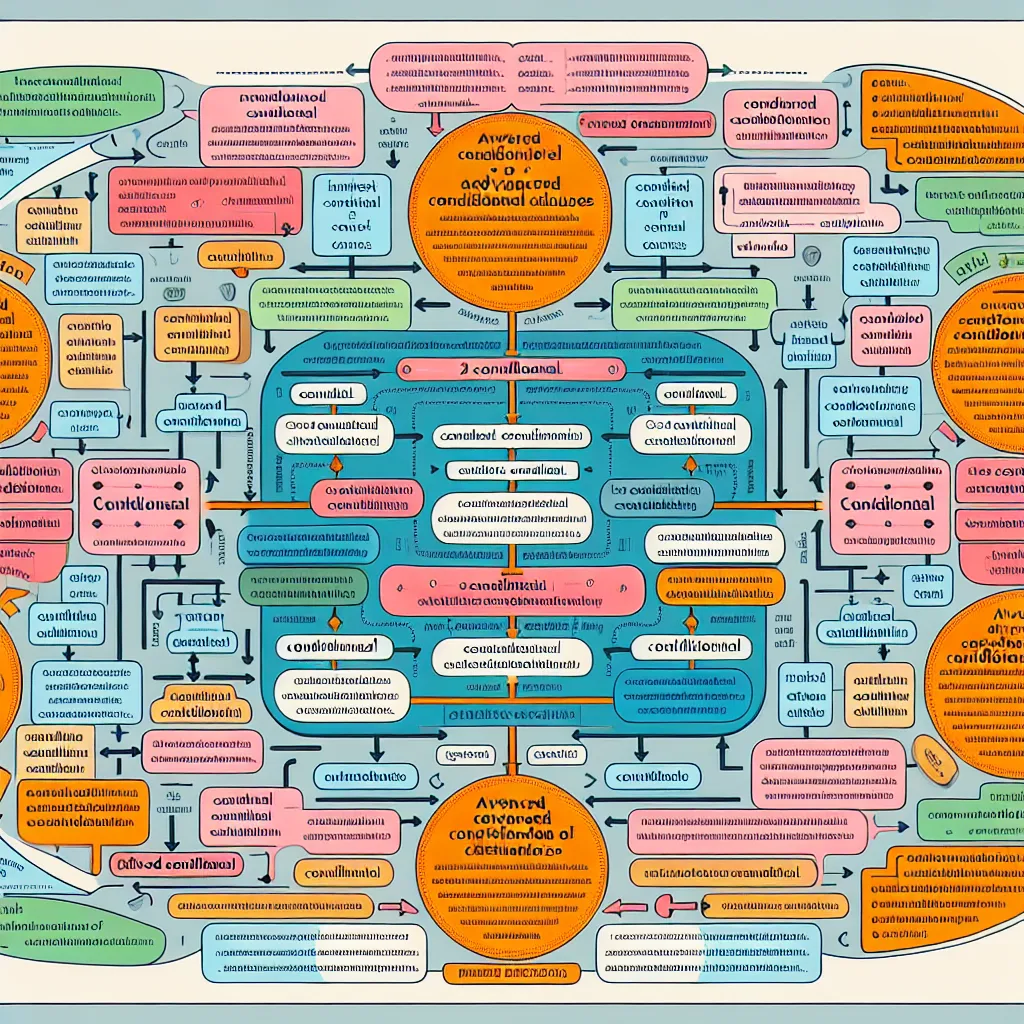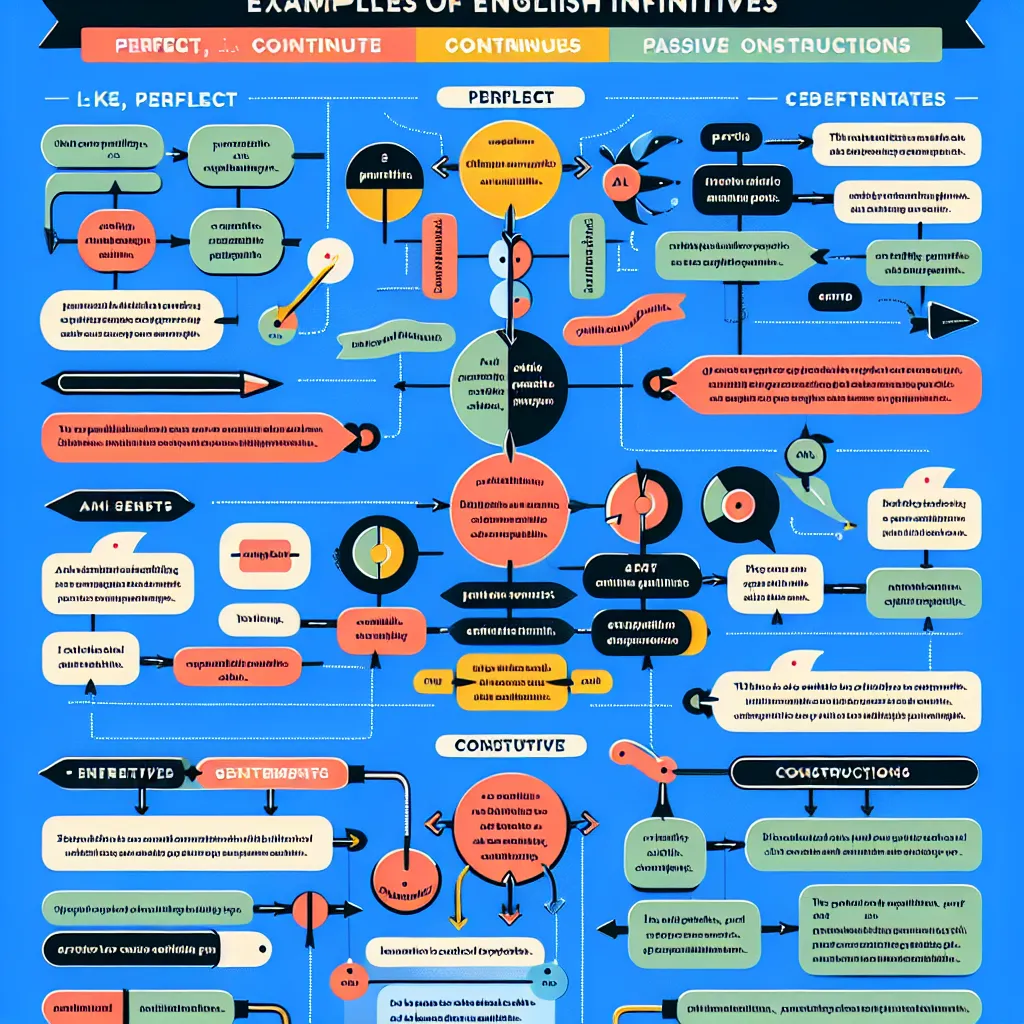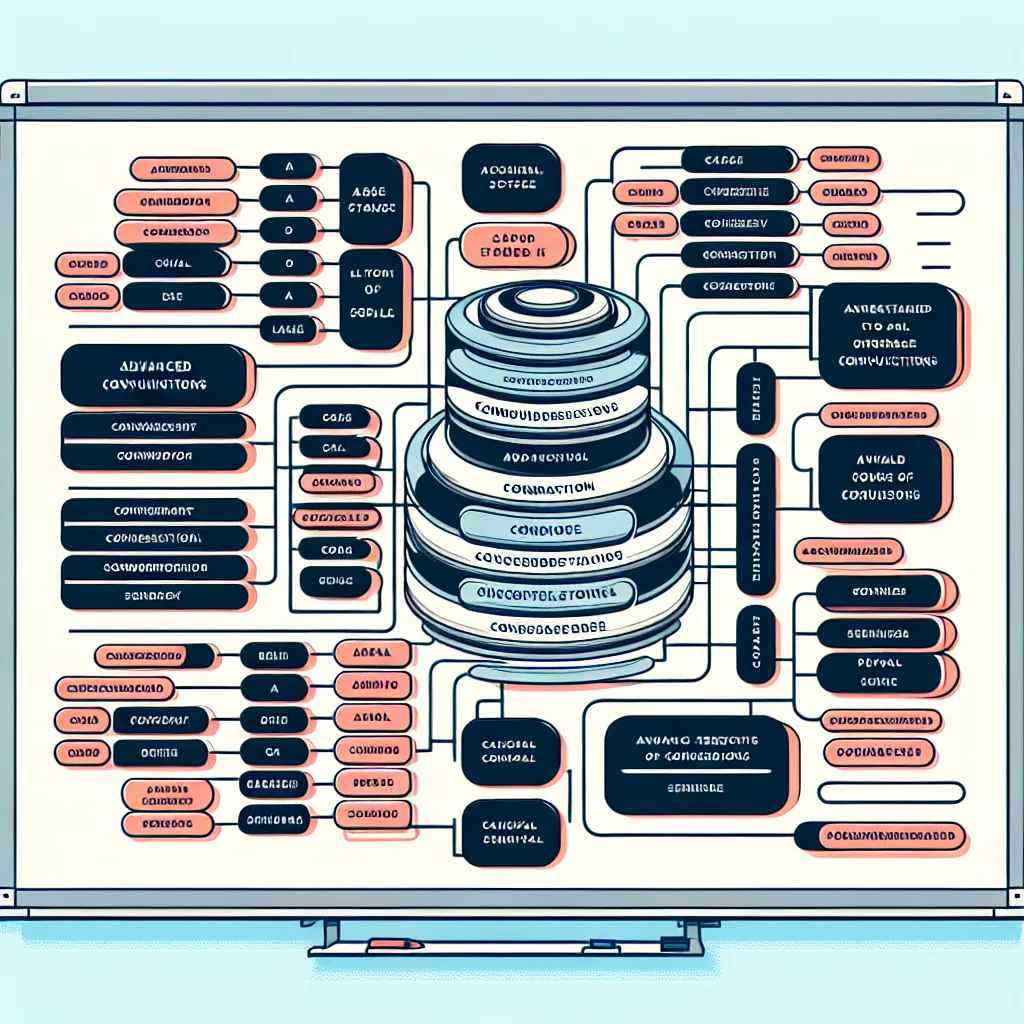Are you looking to take your English grammar skills to the next level? Mastering advanced pronouns is a crucial step in achieving fluency and precision in your language use. This guide will provide you with expert tips and strategies for perfecting your use of advanced pronouns, helping you communicate more effectively in both spoken and written English.
Understanding Advanced Pronouns
Advanced pronouns are an essential component of sophisticated English usage. They include relative pronouns, indefinite pronouns, and reflexive pronouns, among others. These pronouns allow for more nuanced and complex expressions, enhancing the clarity and style of your communication.
Why Advanced Pronouns Matter
Proficiency in advanced pronouns is vital for several reasons:
- Precision: They allow for more accurate and specific references.
- Variety: They help avoid repetition and add diversity to your language.
- Sophistication: They demonstrate a higher level of language mastery.
- Clarity: They can simplify complex ideas and relationships between clauses.
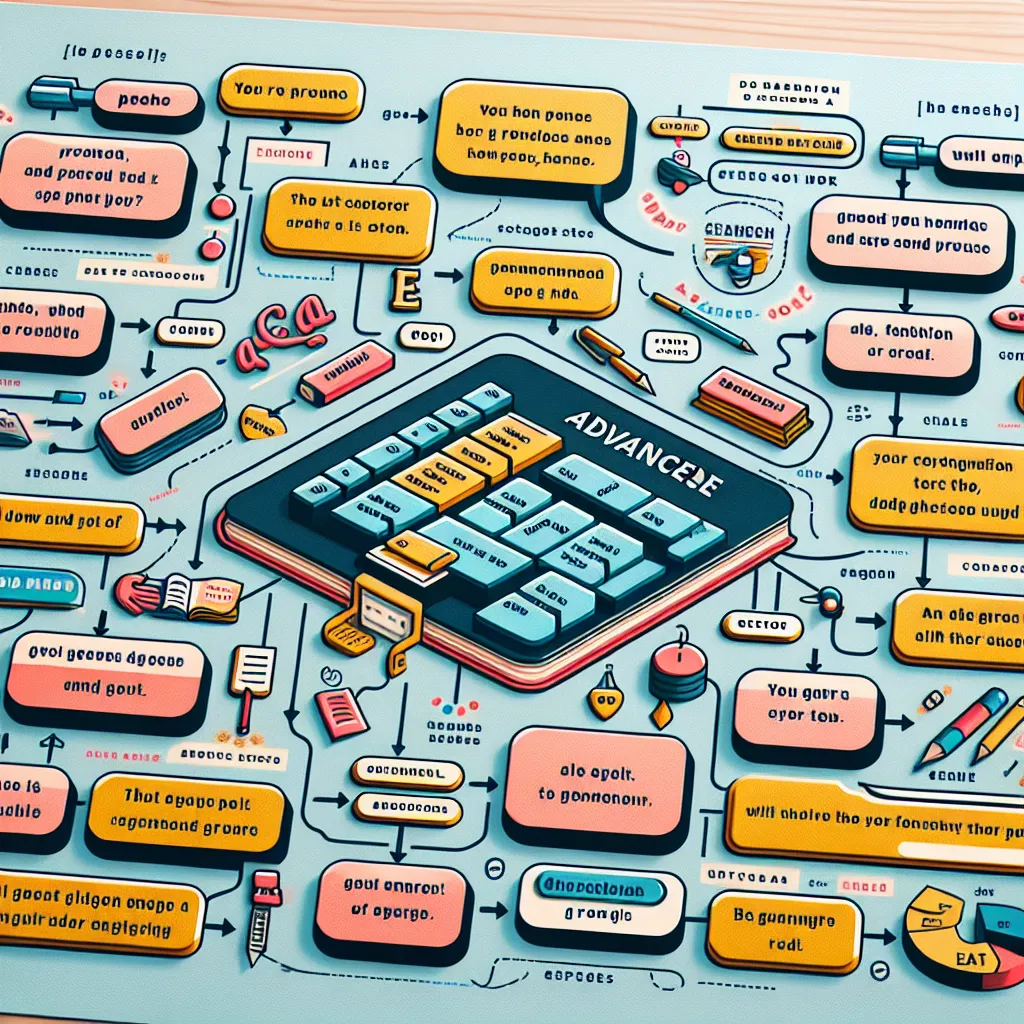 Advanced Pronouns Diagram
Advanced Pronouns Diagram
Types of Advanced Pronouns and Their Usage
Relative Pronouns
Relative pronouns (who, whom, whose, which, that) introduce relative clauses and connect them to the main clause.
Example:
- “The book, which I borrowed from the library, is due next week.”
- “The person who called earlier left a message for you.”
Tip: Remember that “who” is used for people, “which” for things, and “that” can be used for both.
Indefinite Pronouns
Indefinite pronouns (anyone, everyone, someone, nobody, all, each, few, many, some) refer to non-specific persons or things.
Example:
- “Everyone in the class passed the exam.”
- “Few understand the complexity of quantum physics.”
Tip: Pay attention to subject-verb agreement with indefinite pronouns. Some are always singular, while others can be singular or plural depending on context.
Reflexive Pronouns
Reflexive pronouns (myself, yourself, himself, herself, itself, ourselves, yourselves, themselves) refer back to the subject of the clause.
Example:
- “She prepared herself for the interview.”
- “The cat groomed itself meticulously.”
Tip: Avoid using reflexive pronouns as the subject of a sentence. For instance, “Myself and John went to the store” is incorrect.
Common Mistakes and How to Avoid Them
-
Misusing “who” and “whom”:
- Incorrect: “Who did you give the book to?”
- Correct: “Whom did you give the book to?” or “To whom did you give the book?”
-
Overusing reflexive pronouns:
- Incorrect: “Please contact myself with any questions.”
- Correct: “Please contact me with any questions.”
-
Confusing “which” and “that”:
- “Which” is used for non-restrictive clauses (additional information), while “that” is used for restrictive clauses (essential information).
- Example: “The car, which is red, is parked outside.” (non-restrictive)
- Example: “The car that is red belongs to my sister.” (restrictive)
Exercises to Improve Your Skills
-
Fill-in-the-blank exercises: Create sentences with missing pronouns and practice selecting the correct one.
-
Sentence transformation: Take simple sentences and combine them using relative pronouns.
-
Error correction: Identify and correct pronoun errors in given sentences or paragraphs.
-
Writing practice: Compose short paragraphs focusing on using a variety of advanced pronouns correctly.
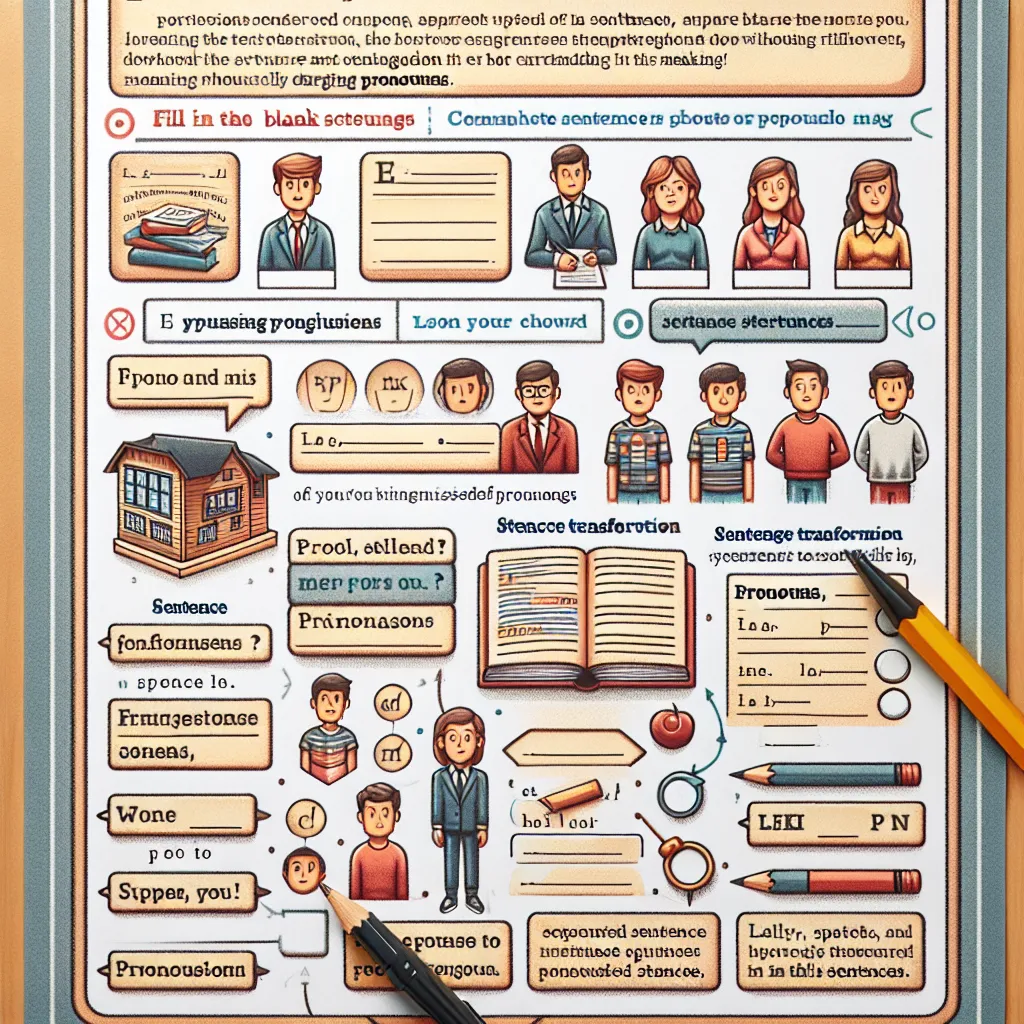 Pronoun Exercises
Pronoun Exercises
Resources for Further Learning
To continue perfecting your use of advanced pronouns, consider the following resources:
- Grammar textbooks: “Advanced English Grammar in Use” by Martin Hewings
- Online courses: Coursera’s “Advanced Grammar and Punctuation” specialization
- Language learning apps: Grammarly for real-time grammar checks
- Practice websites: English Page (www.englishpage.com) for pronoun quizzes and explanations
For more in-depth information on related topics, you might find these articles helpful:
Conclusion
Mastering advanced pronouns is a significant step towards achieving fluency and precision in English. By understanding the different types of pronouns, practicing their correct usage, and avoiding common mistakes, you can significantly enhance your language skills. Remember, consistency and regular practice are key to perfecting your use of advanced pronouns. Keep challenging yourself with diverse texts and exercises, and don’t hesitate to seek feedback from native speakers or language professionals.
We encourage you to share your experiences and questions in the comments below. What aspect of advanced pronouns do you find most challenging? How have you improved your pronoun usage over time? Your insights could be valuable to other learners on the same journey.


